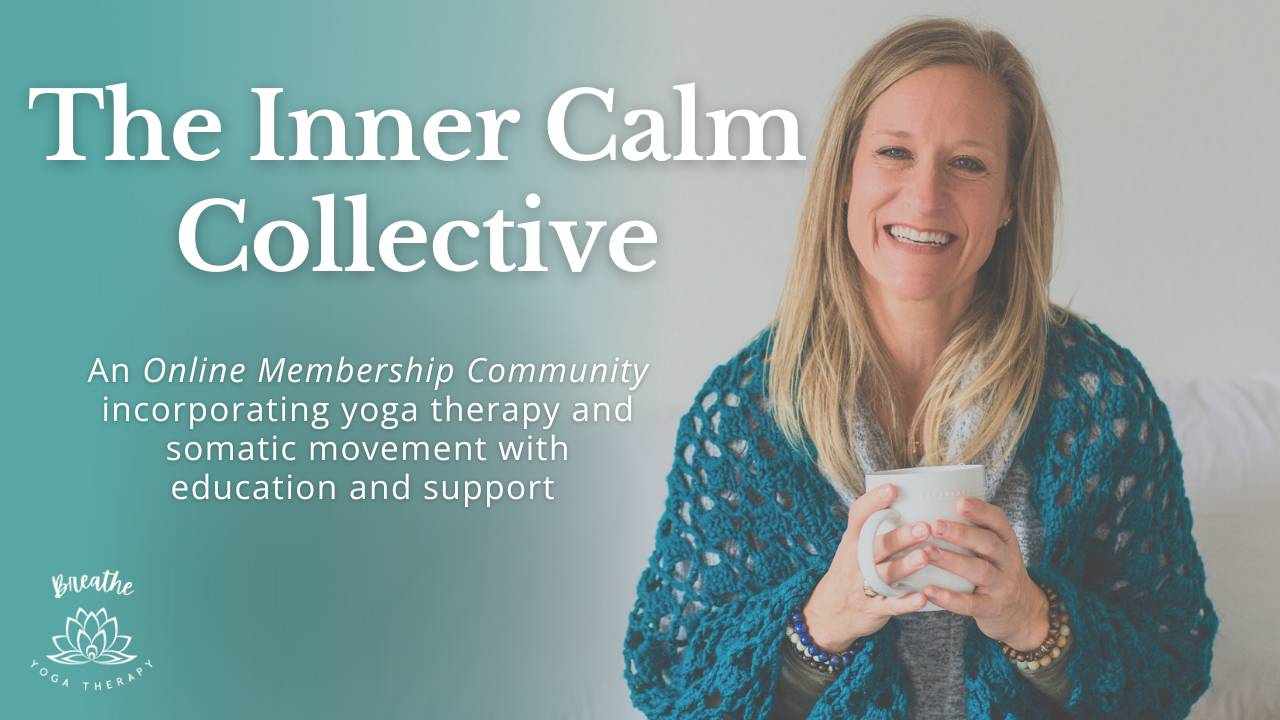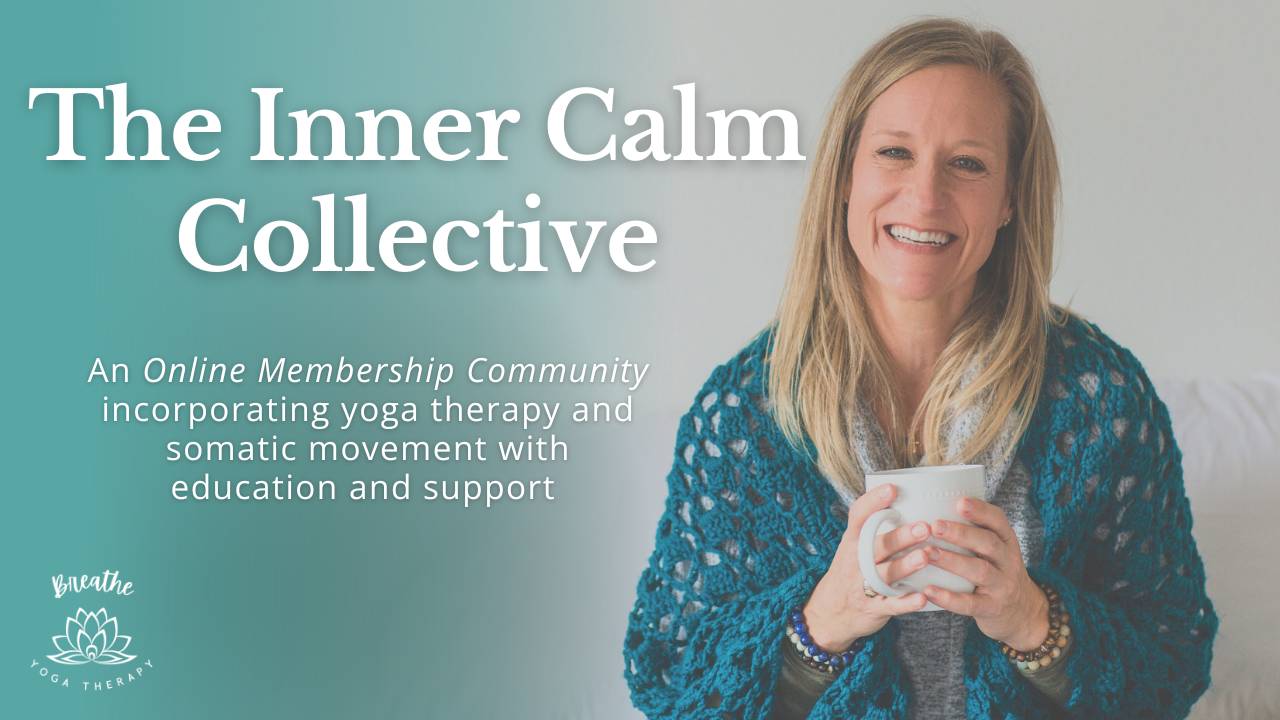What Is Yoga Therapy?

What is Yoga Therapy?
Health from a yogic perspective can be defined as “Enjoying wholesome food and intentional movement. Taking deep breaths, having a willingness to experience a full range of emotions, trusting in your own inner wisdom, practicing selfless service with a connection to others and living a life of purpose.”
Yoga therapy uses tools and practices of yoga including breath, meditation, movement and mindfulness to help us really come to know ourselves and recognize that all of our experiences, our thoughts and our tendencies create the feelings we have about our own health and well-being. Yoga tools help to teach self-regulation and build resilience so that we can stand strong in the face of challenges and find growth and purpose through difficult circumstances.
Yoga therapy uses the Biopsychosocial Model of health which takes into account the physical, mental, emotional, spiritual and social impacts on a persons health, wellness and healing. Yoga therapy is a self-empowering process that guides us to our best self.
Yoga tools help us to explore who we are and what we’re meant to do with our one precious life. These practices help us know that we are not defined by our experiences, diagnosis or circumstances. That our purpose transcends all of these and that we can find joy and peace in living our life’s purpose in spite of mental and physical challenges.
Yoga therapy is teaching and incorporating self-regulation tools and empowering the client to know that they already have all the resources they need within them to rebalance their nervous system and come back into their body in the present moment.
In yoga therapy sessions what happened isn’t as important as what you feel or don't feel in the body. We focus on the feelings in the body, the actual physical sensations of the emotions, describing and allowing for these difficult emotions to pass through with curiosity and compassion. We learn to reconnect with and come back home to a sense of safety within our own body regardless of the emotions we are feeling.
Trauma survivors and anyone dealing with difficult life circumstances may have a hard time with top-down regulation of their autonomic nervous systems because their brain’s frontal lobe (the seat of rational thought) cannot communicate with their amygdala (the seat of fear and survival instincts).
We can begin to heal that connection through bottom-up regulation, connecting the body with the mind. A combination of simple yoga moves, connected with the breath, can help trauma survivors self-regulate so they can feel at peace in their bodies.
What Concerns and Conditions can be addressed through Yoga Therapy?
Yoga therapy can help manage so many conditions and concerns that may affect your happiness, quality of life and overall wellness. So many of these conditions are the result of or create stress in the body, so regulating the nervous system is the first step to feeling better. Some common conditions that can be improved with yoga tools and practices are:
Anxiety
Depression
Difficult relationships
Difficult life circumstances
Grief
Addiction and Recovery
Post traumatic stress
Chronic Stress
Chronic Pain
Chronic health conditions
Autoimmune Conditions
Trouble sleeping
What does a Yoga Therapy Session Look Like?
Each client is an individual and each session is unique, meeting that client where they are on that day. After initial intake and assessments, I design a yoga therapy protocol to help the client meet their stated goals and desired outcomes. That protocol provides a framework that guides us through future sessions.
Each session begins with a grounding breath practice before checking in with the client to see how they’re feeling physically, mentally and emotionally today.
We then practice the tools that are most relevant for that session. We may use breath, movement, meditation, affirmations, tapping or any combination of these.
The intention is to teach these tools and let the client experience and practice them so that in their daily life, they will know which tool to reach for in which situation.
Most sessions end with a guided meditation and the opportunity to journal.
I generally recommend meeting weekly for 8 sessions in order to help the client be familiar with the tools and practices and feel empowered to use the tools in their daily life.
What Tools and Practices do we use in Yoga Therapy?
Breathwork
Meditation
Mindfulness practices
Journaling
Emotional Freedom Technique/Tapping
Movement
Mantra/Affirmations
Yoga Nidra
and more…
These tools and practices have helped me through some of the most challenging times in my life. I use them daily, I talk about them all the time. I believe that everyone will benefit from incorporating them into their daily lives. Want to to learn more and see if yoga therapy is your next step to living your best life full of joy and purpose? Schedule a discovery call with me today!
I hope my experiences remind you that even when it feels like it, you're never alone. I'm right there with you, using and sharing all the resources I have to navigate through life as gracefully as possible. ❤️

Join Our Free Online Community!
You don’t have to do this alone. Inner Calm Collective is our online membership community where you’ll get expert tips, tools, and insights on healing anxiety, trauma, and building nervous system resilience.
Get the support and guidance you need to ease stress, calm your nervous system, and feel more at home in your body—every single day. Join now and start feeling the difference today!



